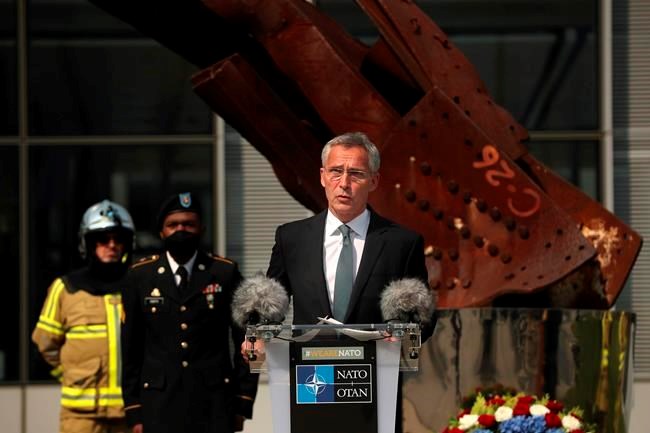BRUSSELS — NATO could pay a heavy price for leaving Afghanistan too early, its chief warned Tuesday after a U.S. official said President Donald Trump is expected to withdraw a significant number of American troops from the conflict-ravaged country in the coming weeks.
NATO has fewer than 12,000 troops from dozens of nations in Afghanistan helping to train and advise the country's national security forces. More than half are not U.S. troops, but the 30-nation alliance relies heavily on the United States for transport, air support, logistics and other assistance. It's unlikely that NATO could even wind down its operation without U.S. help.
“We now face a difficult decision. We have been in Afghanistan for almost 20 years, and no NATO ally wants to stay any longer than necessary. But at the same time, the price for leaving too soon or in an uncoordinated way could be very high,” NATO Secretary-General Jens Stoltenberg said in a statement Tuesday.
He said Afghanistan still “risks becoming once again a platform for international terrorists to plan and organize attacks on our homelands. And ISIS (Islamic State) could rebuild in Afghanistan the terror caliphate it lost in Syria and Iraq.”
The U.S. decision comes just days after Trump installed a new slate of loyalists in top Pentagon positions who share his frustration with the continued troop presence in war zones. The expected plans would cut U.S. troop numbers almost in half by Jan. 15, leaving 2,500 troops in Afghanistan.
U.S. officials said military leaders were told over the weekend about the planned withdrawal and that an executive order is in the works but has not yet been delivered to commanders.
NATO took charge of the international security effort in Afghanistan in 2003, two years after a U.S-led coalition ousted the Taliban for
Stoltenberg said that “even with further U.S. reductions, NATO will continue its mission to train, advise and assist the Afghan security forces. We are also committed to funding them through 2024.”
NATO's security operation in Afghanistan is its biggest and most ambitious undertaking ever. It was launched after the military alliance activated its mutual
"Hundreds of thousands of troops from Europe and beyond have stood shoulder to shoulder with American troops in Afghanistan, and over 1,000 of them have paid the ultimate price," Stoltenberg said.
"We went into Afghanistan together. And when the time is right, we should leave together in a
The United States is by far NATO's biggest and most influential ally. It spends more on
French President Emmanuel Macron said last year that NATO was suffering from “brain death,” in part due to a lack of U.S. leadership.
Stoltenberg has refrained from publicly criticizing Trump or his decisions since Trump came to power in 2016.
Lorne Cook, The Associated Press



